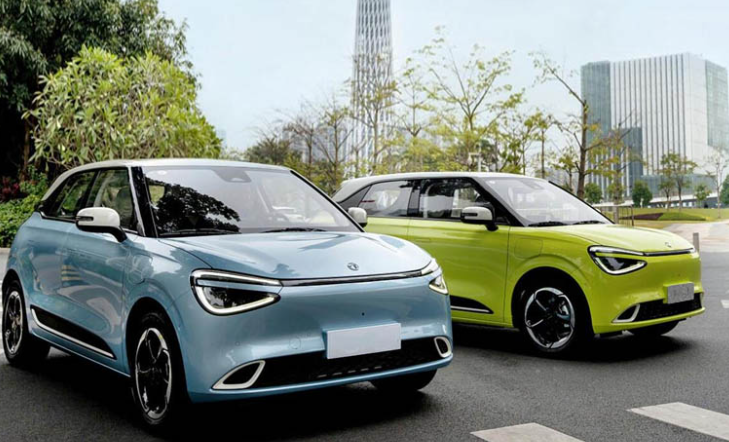Introduction: A Shift to Electric Vehicles (EVs)
Electric vehicles (EVs) have been hailed globally as the future of transportation, offering eco-friendly alternatives to traditional petrol and diesel-powered cars. With global concerns about climate change and a push towards sustainability, EVs are becoming a popular choice in many countries. But how viable are electric cars in Nigeria, a country with unique challenges ranging from unstable electricity supply to poor road infrastructure?
This article explores whether electric vehicles are worth it in Nigeria, analyzing key factors like cost, availability, infrastructure, environmental impact, and government policy.
The Current State of Electric Cars in Nigeria
Electric cars are still a relatively new concept in Nigeria. A few EV models, such as the Hyundai Kona EV and Tesla imports, are available but remain inaccessible to the average consumer due to their high price tags. Additionally, the limited awareness about EVs and their benefits has slowed their adoption.
While Nigeria has made strides towards encouraging electric mobility—such as the National Automotive Design and Development Council (NADDC) unveiling an EV charging station at Usmanu Danfodiyo University, Sokoto—challenges remain, including lack of widespread infrastructure and the high cost of EVs.
Advantages of Electric Cars in Nigeria
Environmental Benefits:
One of the biggest advantages of EVs is their contribution to reducing carbon emissions. Nigeria, with its growing urban population, suffers from air pollution caused by petrol and diesel vehicles. EVs could help reduce this pollution significantly.
Cost Savings on Fuel:
Electric cars rely on electricity, which is cheaper than petrol and diesel in the long run. This can save Nigerian drivers a significant amount of money, especially with the recent removal of fuel subsidies that has driven up fuel prices.
Low Maintenance Costs:
EVs have fewer moving parts than internal combustion engine vehicles, which translates to lower maintenance costs. There’s no need for oil changes, exhaust system repairs, or engine tune-ups.
Global Shift Towards Sustainability:
As countries worldwide adopt EVs and phase out fossil-fuel vehicles, Nigeria has an opportunity to align with global trends and attract foreign investments in green energy and transportation.
Challenges Facing Electric Cars in Nigeria
Unstable Power Supply:
Nigeria’s electricity supply is notoriously unreliable. Frequent power outages mean EV owners may struggle to charge their cars at home, making EV ownership inconvenient for most Nigerians.
Lack of Charging Infrastructure:
EV charging stations are almost non-existent in Nigeria, with only a handful located in major cities like Lagos and Abuja. This creates “range anxiety,” as drivers worry about running out of battery with no charging stations nearby.
High Initial Cost:
EVs are expensive compared to petrol-powered vehicles. The Hyundai Kona EV, for example, costs about ₦25 million, which is out of reach for most Nigerians. Coupled with high import duties, these costs make EV ownership a luxury rather than a viable option for the average consumer.
Road Infrastructure:
Poor road conditions in many parts of Nigeria pose a challenge for EVs, particularly models with lower ground clearance.
Limited Local Expertise:
Nigeria lacks trained technicians and mechanics for EV maintenance and repair. This could leave EV owners reliant on manufacturers for servicing, which can be expensive and time-consuming.
Comparing Electric Cars and Petrol Cars
| FEATURE | ELECTRIC CARS | PETROL CARS |
| Cost | Expensive upfront but cheaper in the long run (no fuel costs) | Cheaper upfront, higher fuel expenses |
| Maintenance | Lower (fewer parts to replace) | Higher (frequent servicing required) |
| Environmental Impact | Zero Emissions | High emissions (pollution) |
| Convenience | Dependent on charging infrastructure | Easier to refuel with abundant petrol stations |
Government Policies and Support
For electric cars to thrive in Nigeria, the government needs to play an active role by:
1). Reducing Import Duties: High import duties on EVs discourage buyers. Lowering these tariffs could make EVs more affordable.
2). Building Charging Infrastructure: Public-private partnerships could be leveraged to establish EV charging stations nationwide.
3). Incentives for EV Owners: Tax rebates, subsidies, or free charging incentives can encourage EV adoption.
4). Promoting Renewable Energy: Investing in solar and other renewable energy sources could solve the electricity challenge and create a sustainable power supply for EVs.
Are Electric Cars Worth It Yet in Nigeria?
For the Average Consumer:
Currently, EVs are not a practical choice for most Nigerians due to their high cost and the lack of infrastructure. The average Nigerian would find it difficult to justify the cost of an EV compared to cheaper petrol-powered cars.
For High-Income Earners:
For affluent Nigerians living in urban areas like Lagos, Abuja, or Port Harcourt—where charging stations are slowly being introduced—electric cars may be worth considering as a luxury item or a statement of environmental consciousness.
For the Future:
As global EV prices drop, infrastructure improves, and Nigeria invests in renewable energy, EVs could become more viable. However, for now, they remain a niche option rather than a mainstream solution.
Conclusion
Electric cars hold immense potential for Nigeria, offering environmental benefits, lower long-term costs, and alignment with global sustainability goals. However, challenges like unstable power supply, limited infrastructure, high costs, and poor road conditions make them impractical for most Nigerians at present.
For EVs to become a viable option, Nigeria needs targeted investments in charging infrastructure, renewable energy, and policies that make EVs affordable and accessible. Until then, electric cars will likely remain a luxury for the wealthy rather than a sustainable option for the average Nigerian.






